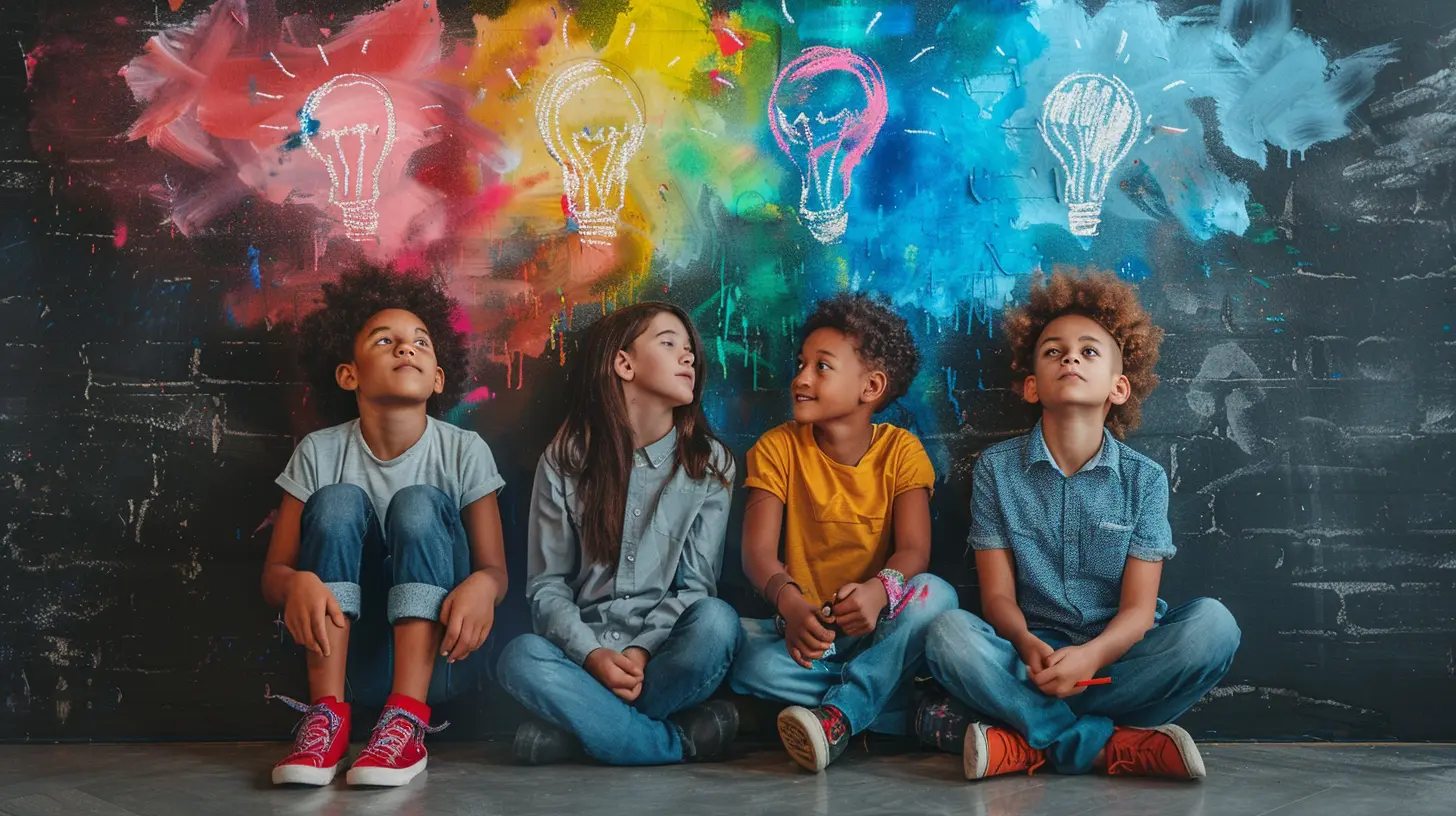"The Role of Emotional Intelligence in Inclusive Education
19 September 2025
Education is more than just academics. It’s about growth, connection, and understanding. Think about the one teacher who made a lasting impact on you. Chances are, they weren’t just knowledgeable—they were emotionally intelligent. In an inclusive classroom, emotional intelligence (EI) plays an even bigger role.
But what exactly is emotional intelligence, and why does it matter so much in inclusive education? Let's dive in and break it all down.

What is Emotional Intelligence?
Emotional intelligence, or EI, refers to the ability to recognize, understand, and manage emotions—both in yourself and in others. It consists of five key components:1. Self-awareness – Understanding your emotions and how they affect others.
2. Self-regulation – Managing emotions in healthy ways, rather than reacting impulsively.
3. Motivation – Having the drive to achieve goals despite setbacks.
4. Empathy – Understanding the feelings of others and responding appropriately.
5. Social skills – Building strong relationships and communicating effectively.
In the context of education, EI helps teachers, students, and even parents navigate the complexities of a diverse classroom.

Why Emotional Intelligence Matters in Inclusive Education
Inclusive education is all about ensuring every student—regardless of ability, background, or learning style—gets the support they need to succeed. This means classrooms are filled with students of different abilities, neurodiverse learners, and varying social-emotional needs.Here’s where EI comes in. When teachers and students develop emotional intelligence, the classroom becomes a safe, supportive, and engaging space for everyone.
1. Fostering a Positive Classroom Environment
Imagine walking into a classroom where students feel heard, respected, and valued. That’s the power of emotional intelligence in action. Teachers with high EI create an atmosphere where students feel safe expressing themselves.By recognizing students' emotional needs, educators can:
- Reduce anxiety and stress.
- Encourage open communication.
- Prevent behavioral issues before they escalate.
A classroom grounded in emotional intelligence is one where students feel they truly belong.
2. Enhancing Teacher-Student Relationships
Have you ever had a teacher who just "got" you? Teachers with strong emotional intelligence build deeper connections with their students. They can pick up on subtle cues—like a furrowed brow or nervous fidgeting—that signal a student might be struggling.These teachers know when to push, when to support, and how to create a balance that meets individual student needs. It’s not just about teaching math or reading; it’s about helping students grow as individuals.
3. Encouraging Empathy and Understanding Among Students
Students in an inclusive classroom come from different backgrounds and abilities. Some may have learning disabilities, while others might struggle with social skills. When EI is prioritized, students learn to:- Understand their classmates’ challenges.
- Show kindness instead of judgment.
- Work together as a team despite differences.
This kind of environment fosters friendships, teamwork, and an overall sense of belonging—key ingredients for a thriving classroom.
4. Supporting Mental Health and Well-Being
School can be overwhelming, especially for students dealing with personal struggles, bullying, or academic pressure. Teachers with high emotional intelligence can:- Recognize when a student is struggling emotionally.
- Provide support or refer them to school counselors.
- Encourage students to express their feelings in healthy ways.
By prioritizing emotional well-being, schools can help students develop resilience and coping skills that will benefit them for life.
5. Improving Conflict Resolution Skills
Let’s face it—conflict is inevitable in any classroom. Whether it's a disagreement between students or frustration over an assignment, emotions can run high.Teachers with EI help students navigate conflicts by:
- Encouraging open and respectful discussions.
- Teaching problem-solving skills.
- Guiding students toward compromise and understanding.
Instead of punishing misbehavior, emotionally intelligent educators use conflicts as learning opportunities. This teaches students how to handle real-world disagreements in a productive way.

How Teachers Can Cultivate Emotional Intelligence in the Classroom
The good news? Emotional intelligence isn’t just something you're born with—it can be developed! Here’s how teachers can incorporate EI into their classrooms:1. Model Emotional Intelligence
Students watch and learn from their teachers. If you remain calm under pressure, practice empathy, and handle challenges with grace, they will follow suit.2. Teach Emotional Vocabulary
Help students identify and name their emotions. Instead of saying, "I’m mad," they can learn to say, "I feel frustrated because I don’t understand the assignment." Giving words to emotions makes it easier to manage them.3. Encourage Mindfulness and Self-Reflection
Simple mindfulness exercises—like deep breathing or journaling—can help students become more self-aware. Encourage them to reflect on their emotions and how their actions affect others.4. Promote Inclusivity and Respect
Create a culture where diversity is celebrated. Let students share their experiences, perspectives, and challenges openly. Activities like "circle time" or group discussions can help build this sense of community.5. Use Real-Life Scenarios
Role-playing activities can be a fun and effective way to teach emotional intelligence. Have students act out different scenarios—like resolving a conflict or comforting a friend—and discuss the best ways to handle emotions.6. Develop Strong Communication Skills
Encourage students to express themselves clearly and listen actively. Teaching phrases like, "I feel this way because…" can help them communicate their emotions in a healthy manner.7. Provide Constructive Feedback
Instead of punishing mistakes, use them as learning experiences. Help students understand their emotions and guide them toward positive behaviors.
Conclusion
Emotional intelligence is not just a "nice-to-have" in education—it’s essential, especially in inclusive classrooms. By fostering EI in teachers and students, we create learning environments where everyone feels valued and understood.When students develop emotional intelligence, they’re not just becoming better learners; they’re becoming better people. And isn’t that the true purpose of education?
all images in this post were generated using AI tools
Category:
Emotional IntelligenceAuthor:

Eva Barker
Discussion
rate this article
1 comments
Thorne McMillan
Emotional intelligence in inclusive education? It's like adding sprinkles to a cupcake—just makes everything sweeter! Plus, who knew empathy could be the secret ingredient for learning? Let’s cook up some compassionate classrooms!
October 8, 2025 at 5:08 AM

Eva Barker
Thank you for the delicious analogy! Empathy truly enhances the learning experience, making classrooms not just inclusive but also nurturing. Let's keep advocating for compassion in education!


